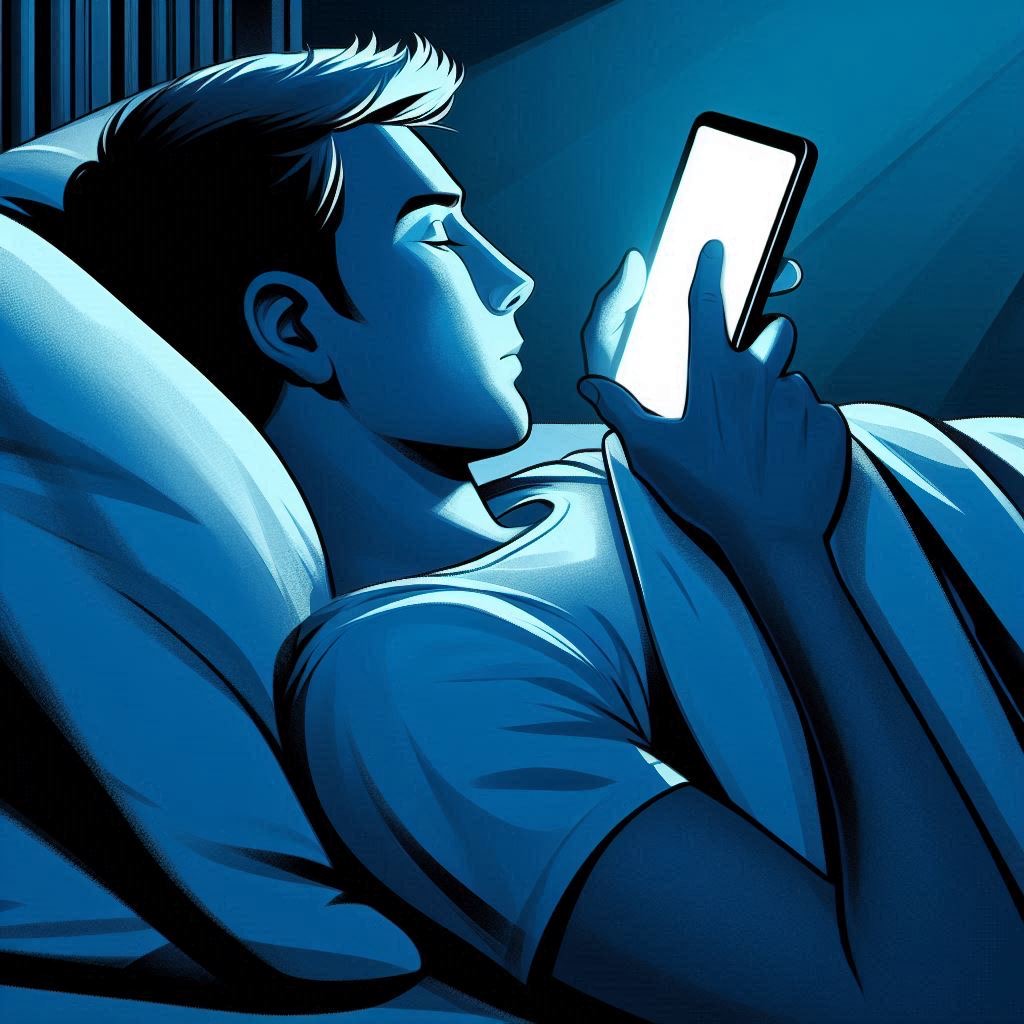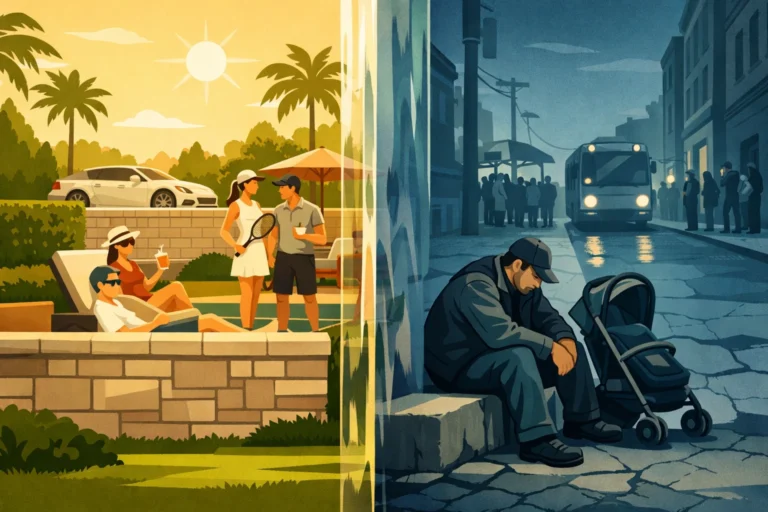The Fragile Weave: How Sleep Deprivation Unravels Immune Systems and Social Bonds
When I first encountered the study on sleep deprivation’s impact on immune function—published in The Journal of Immunology—I was struck by its clinical precision. Researchers had revealed that even 24 hours of sleep loss could shift immune cell profiles in healthy individuals to resemble those seen in chronic inflammatory states like obesity. Monocytes, our immunological sentinels, became dysregulated; non-classical subsets surged, mirroring patterns linked to cardiovascular risks and metabolic disorders. Here was concrete evidence that sleep isn’t passive recovery but active biological maintenance.
Yet as I sat with these findings, a deeper question emerged: If sleep deprivation rewires our immune systems so profoundly, what might it be doing to the invisible networks connecting us to others? How does fragmented rest alter not just cells, but communities?
I turned to AI analysis to bridge this gap between lab findings and lived experience. What followed was a revelation—a tapestry of research showing how sleep shapes empathy, communication, and collective trust. The answer wasn’t merely about individual health; it was about the glue holding societies together. Below lies that synthesis: part scientific insight, part social manifesto, and wholly a call to reimagine rest as the bedrock of human connection.
The Body’s Nightshift: Sleep as Biological Guardian
Sleep is not merely rest; it is an active state of repair and regulation that underpins immune health. During deep sleep stages, the body performs critical functions:
- Immune Cell Regulation: Sleep deprivation increases inflammatory monocytes in circulation, which can lead to chronic inflammation. While inflammation is necessary for healing, excessive activation can harm tissues and raise the risk of autoimmune diseases.
- Stem Cell Aging: Chronic poor sleep alters the programming of immune stem cells, reducing their diversity and accelerating their aging. This makes the body less capable of responding to infections or repairing damage.
- Weakened Defense Against Infections: Studies show that individuals who sleep fewer than 7 hours a night are three times more likely to develop colds or flu due to reduced natural killer (NK) cell activity and antibody production.
These findings underscore how sleep deprivation shifts the immune system from repair to overactivation—a state that fosters inflammation rather than resolution.
The Social Cost of Sleeplessness
While the biological toll of sleep deprivation is well-documented, its effects on social dynamics are equally profound. Sleep is not just a personal health practice; it is a cornerstone of human connection.
1. Empathy Erosion
Sleep-deprived individuals show reduced activity in brain regions responsible for emotional understanding, such as the anterior insula. This diminishes their ability to empathize with others’ emotions or respond compassionately during interactions. In couples, poor sleep increases conflict frequency by 32%, as partners struggle to interpret each other’s emotional cues accurately.
2. Communication Breakdowns
Sleep loss impairs verbal fluency and attentiveness, making conversations less effective and more prone to misunderstandings. Teams with members averaging less than 6 hours of sleep report significantly higher rates of miscommunication during collaborative tasks.
3. Trust Deficits in Communities
Chronic sleep disruption affects societal trust. Neighborhoods with high rates of poor-quality sleep report lower levels of perceived safety and willingness to help one another. On an individual level, sleep-deprived people are more likely to interpret neutral facial expressions as hostile, fueling unnecessary conflict.
Rebuilding Rest: A Dual Approach for Individuals and Society
To mitigate the effects of sleep deprivation on both health and social cohesion, we must address it at both personal and systemic levels:
For Individuals:
- Create a Sleep Ritual: Dedicate at least 90 minutes before bed to winding down without screens or work-related stressors. Incorporate calming activities like reading or meditation to signal your brain that it’s time for rest.
- Prioritize Consistency: Go to bed and wake up at the same time daily—even on weekends—to align your circadian rhythm with your body’s natural clock.
- Practice Social Awareness Post-Sleep Loss: On days when you’ve had poor rest, acknowledge its potential impact on your mood or communication by prefacing conversations with honesty (e.g., “I’m feeling tired today—let me know if I seem off”).
For Society:
- Urban Design for Sleep Health: Advocate for policies that reduce noise pollution in residential areas and increase access to green spaces where people can relax during the day—both factors improve overall sleep quality.
- Workplace Interventions: Encourage employers to adopt flexible schedules that allow workers sufficient time for rest between shifts. Companies could also provide nap spaces or educate employees about the importance of sleep for productivity and teamwork.
- Community Sleep Education: Public health campaigns should emphasize how better sleep supports not just individual health but also stronger relationships and safer communities.
The Paradox of Solitude in Sleep
Sleep may seem like an isolated act—an inward retreat from the world—but it is deeply communal in its effects. Each night we spend in restorative rest strengthens our ability to connect meaningfully with others come morning. It sharpens our empathy, steadies our communication, and rebuilds the trust that binds societies together.
Ancient cultures understood this intuitively through practices like communal sleeping arrangements or midday siestas that aligned with natural rhythms. Modern science now confirms what these traditions long suggested: When we honor rest—not just as a personal necessity but as a collective value—we foster resilience not only within our bodies but also within our communities.
Let us reclaim sleep as both sanctuary and foundation—a vital thread in the fragile weave of health and human connection.
Resources:
Biological Impact on Immunity:
- Nature Immunology (2024):
https://www.nature.com/articles/s41590-023-01727-3- Sleep regulates innate immunity, with chronic deprivation impairing immune responsiveness.
- Nature Communications (2021):
https://www.nature.com/articles/s42003-021-02859-8- Poor sleep linked to increased autoimmune markers and pro-inflammatory status.
- PMC Article (2021):
https://pmc.ncbi.nlm.nih.gov/articles/PMC8602722/- Sleep deprivation alters innate and adaptive immune parameters, leading to chronic inflammation.
- PMC Article (2017):
https://pmc.ncbi.nlm.nih.gov/articles/PMC4685944/- Early studies on sleep loss affecting immunocyte function.
- Frontiers in Psychiatry (2022):
https://www.frontiersin.org/journals/psychiatry/articles/10.3389/fpsyt.2022.1034405/full- Chronic insomnia associated with weaker immunity and changes in immunoglobulin levels.
Social Impact on Empathy, Communication, and Community:
- UC Berkeley News (2022):
https://news.berkeley.edu/2022/08/23/sleepless-and-selfish-lack-of-sleep-makes-us-less-generous/- Sleep loss reduces prosocial behaviors like generosity and increases social withdrawal.
- University of California News (2018):
https://www.universityofcalifornia.edu/news/how-poor-sleep-can-ruin-your-social-life- Sleep-deprived individuals are perceived as socially unattractive and feel lonelier.
- Medical News Today (2019):
https://www.medicalnewstoday.com/articles/324678- Sleep deprivation leads to social isolation and reduced social engagement.
- PubMed Central (2018):
https://pmc.ncbi.nlm.nih.gov/articles/PMC6092357/- Sleep loss causes social withdrawal and loneliness, affecting both the sleep-deprived and those around them.
- University of Michigan PDF (2019):
https://sites.lsa.umich.edu/whirl/wp-content/uploads/sites/792/2020/08/2019-Sleep-and-social-processes-chapter.pdf- Discusses the bidirectional links between sleep and social processes.
- PubMed Article (2018):
https://pubmed.ncbi.nlm.nih.gov/31072564/- Sleep deprivation impairs self-regulation and social behavior, reducing empathy and trust.
- Royal Society Open Science (2017):
https://royalsocietypublishing.org/doi/10.1098/rsos.160918- Examines how sleep restriction affects facial appearance and social interactions.




